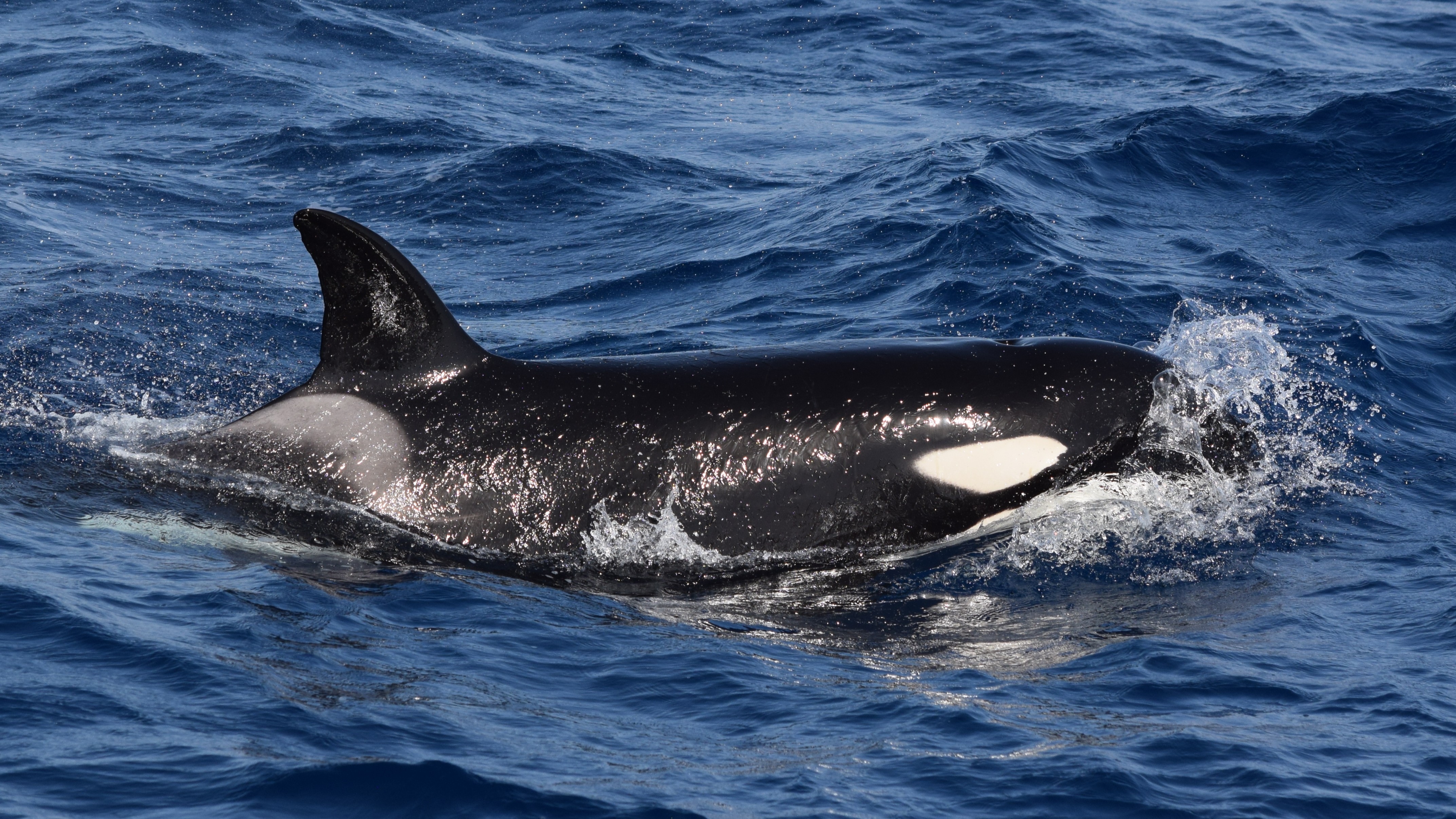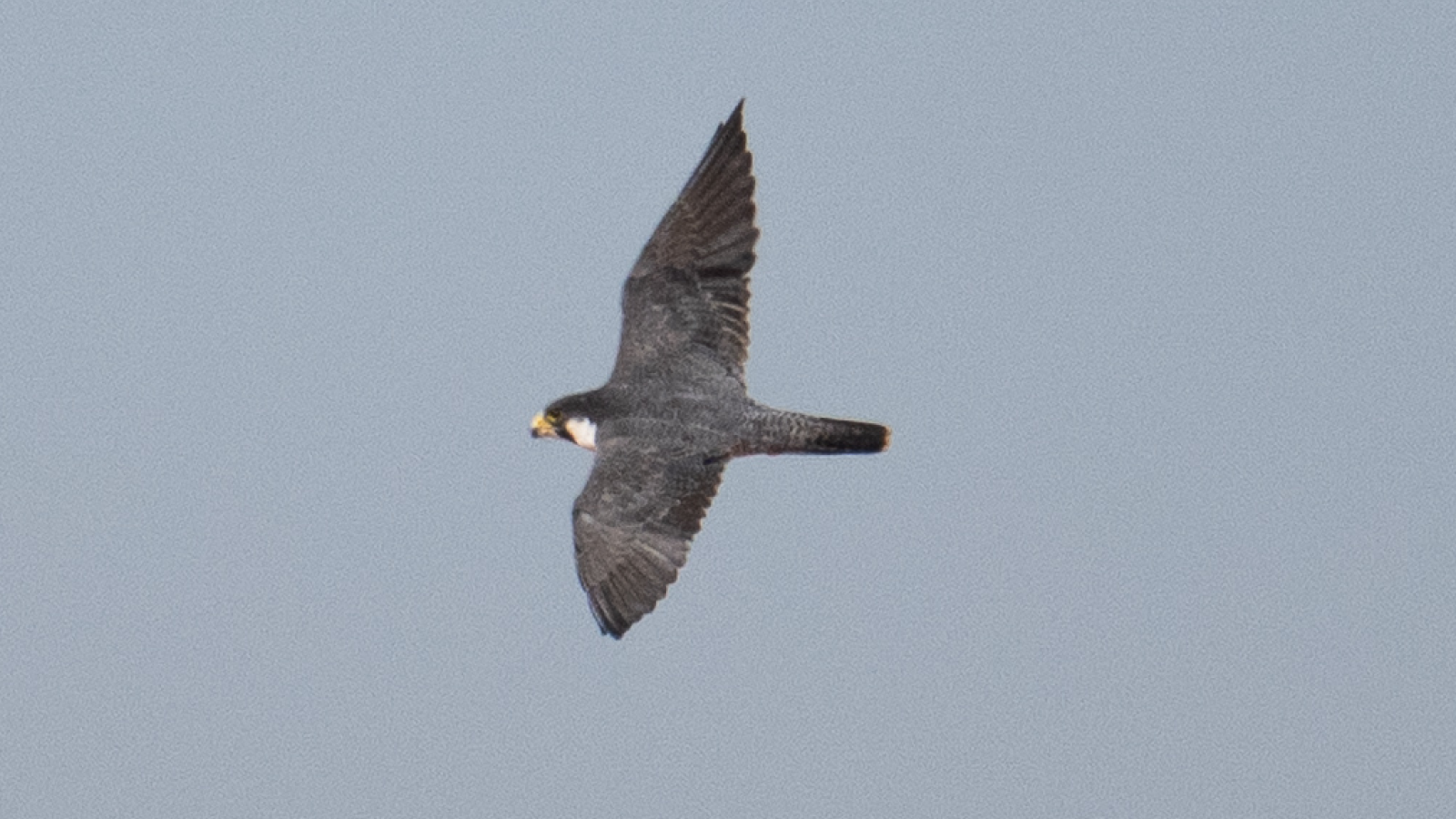'We completely freaked out': Orcas are attacking boats in Europe again
Iberian orcas have damaged several boats off the coast of Spain in recent weeks, leaving authorities scrambling to rescue stranded crews.

Get the world’s most fascinating discoveries delivered straight to your inbox.
You are now subscribed
Your newsletter sign-up was successful
Want to add more newsletters?

Delivered Daily
Daily Newsletter
Sign up for the latest discoveries, groundbreaking research and fascinating breakthroughs that impact you and the wider world direct to your inbox.

Once a week
Life's Little Mysteries
Feed your curiosity with an exclusive mystery every week, solved with science and delivered direct to your inbox before it's seen anywhere else.

Once a week
How It Works
Sign up to our free science & technology newsletter for your weekly fix of fascinating articles, quick quizzes, amazing images, and more

Delivered daily
Space.com Newsletter
Breaking space news, the latest updates on rocket launches, skywatching events and more!

Once a month
Watch This Space
Sign up to our monthly entertainment newsletter to keep up with all our coverage of the latest sci-fi and space movies, tv shows, games and books.

Once a week
Night Sky This Week
Discover this week's must-see night sky events, moon phases, and stunning astrophotos. Sign up for our skywatching newsletter and explore the universe with us!
Join the club
Get full access to premium articles, exclusive features and a growing list of member rewards.
Orcas along the Spanish coast are attacking boats once again, leaving destroyed rudders and stranded crews in their wake.
A small population of orcas (Orcinus orca), or killer whales, has developed a penchant for damaging boats off the Iberian Peninsula in southwestern Europe in recent years. Researchers are still studying this behavior, but they think the orcas are likely being playful rather than aggressive.
On Aug. 21, orcas tore the rudder off a German sailboat in the Vigo estuary in Galicia, Spanish newspaper Faro de Vigo reported. The orcas then continued to play with the sailboat, which they rammed as it was towed to safety.
Ataque de orcas en costa da vela a varios veleros produciendo daños en la pala del timón a uno. La patrullera de la #GC da protección hasta llegada embarcación Salvamento Maritimo que inicia remolque a puerto.Patrullera realiza protección y acerca proa, intentando alejarlas. pic.twitter.com/u9KAyXbUF2August 21, 2025
The Pontevedra Civil Guard, a Spanish law enforcement agency, shared a video of the sailboat rescue on the social platform X and wrote that the orcas had attacked several sailboats. It's unclear exactly how many boats were targeted prior to this post, but there have also been incidents since.
For instance, on Saturday (Aug. 30), Faro de Vigo reported that orcas destroyed a traditional wooden sailing ship's rudder off O Grove within the Arousa estuary and opened a leak in another sailboat off Ons within the Pontevedra estuary.
Valentín Otero, the owner of the ship targeted in O Grove, told Faro de Vigo that he heard two blows against his vessel before he spotted a pair of orcas. Otero and his crew reported that there was a larger orca measuring about 23 feet (7 meters) long accompanied by a smaller orca swimming alongside it.
"The truth is we were very frightened; in fact we completely freaked out when we realized the orcas were hitting the boat," Otero said in a translated statement.
Get the world’s most fascinating discoveries delivered straight to your inbox.
Related: Watch a pod of orcas pretending to drown one of their own in macabre training session
The Iberian orcas are a critically endangered orca subpopulation thought to have fewer than 40 individuals. The group has been attacking boats off the coast of Spain and Portugal since 2020. While some initial reports suggested that Iberian orcas could be carrying out revenge against the ships, this has been dismissed by many orca experts.
The encounters often involve young orcas going straight for the rudders on the underside of sailing boats. Scientists have suggested that the orcas are likely just bored teenagers with more free time since Atlantic bluefin tuna (Thunnus thynnus) populations — their favorite prey in the region — recovered, meaning they need to spend less time hunting.
Orca behavior is diverse and complex. Researchers have observed the species engaging in intricate social rituals, from gently nibbling on each other's tongues to tumbling alongside each other as if they're in an aquatic mosh pit. Different orca populations also have their own dialects, similar to human language, and can develop their own unique "fads," such as swimming around with dead salmon on their heads.
There's no reason to suspect that the Iberian orcas are targeting the people aboard the boats. Orcas are fierce predators that are known to hunt a variety of different prey, from tuna to seals, sharks and even whales. However, each population has a particular diet, and none of them involves eating humans. There's only a handful of documented cases of wild orcas attacking humans, and all of these reported incidents come with significant caveats, such as an orca likely mistaking a person for a seal.

Patrick Pester is the trending news writer at Live Science. His work has appeared on other science websites, such as BBC Science Focus and Scientific American. Patrick retrained as a journalist after spending his early career working in zoos and wildlife conservation. He was awarded the Master's Excellence Scholarship to study at Cardiff University where he completed a master's degree in international journalism. He also has a second master's degree in biodiversity, evolution and conservation in action from Middlesex University London. When he isn't writing news, Patrick investigates the sale of human remains.
You must confirm your public display name before commenting
Please logout and then login again, you will then be prompted to enter your display name.
 Live Science Plus
Live Science Plus










